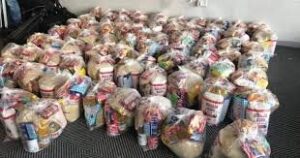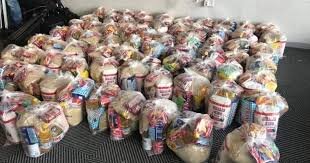SASSA Food Parcel 2024: What’s Included in the Package
The South African Social Security Agency (SASSA) has historically played a crucial role in providing social assistance to the country’s most vulnerable populations, including the distribution of food parcels. However, as of 2024, SASSA is no longer providing any kind of food parcel. This article examines the reasons behind this change, the impact on those previously dependent on these parcels, and explores the available alternatives for individuals and families facing food insecurity.
SASSA Food Parcel 2024
In previous years, SASSA’s food parcel program was a significant component of its social assistance offerings. These parcels were designed to alleviate food insecurity by providing essential items to households in need. The discontinuation of this program marks a significant shift in SASSA’s approach to addressing hunger and poverty.

Reasons for Discontinuation
Several factors have contributed to the decision to stop providing food parcels:
- Budget Constraints: Financial limitations have made it challenging to sustain the food parcel program.
- Policy Shifts: There has been a strategic move towards more sustainable forms of social assistance.
- Operational Challenges: Logistical issues in the distribution and management of food parcels have also played a role.
Before applying for a SASSA food parcel, it’s essential to complete an SRD SASSA status check to ensure you meet the necessary criteria.
Alternatives to SASSA Food Parcels
Government Assistance Programs
While SASSA no longer provides food parcels, other government assistance programs are available:
- Social Grants: SASSA continues to provide various social grants, including old age pensions, disability grants, and child support grants. These grants can help beneficiaries purchase their own food.
- Emergency Relief: In cases of extreme need, SASSA may offer emergency financial assistance to help with immediate necessities, including food.
Community and Non-Governmental Organizations
Several community and non-governmental organizations (NGOs) have stepped in to provide food assistance:
- Food Banks: Organizations like FoodForward SA collect and distribute food to those in need.
- Soup Kitchens: Local soup kitchens provide hot meals to individuals and families facing food insecurity.
- Charitable Organizations: Many charities run programs specifically aimed at alleviating hunger, offering both food parcels and cooked meals.
How to Access Alternative Support
Individuals and families seeking assistance can explore the following avenues:
- Contact Local SASSA Offices: While food parcels are no longer available, SASSA offices can provide information on other forms of assistance.
- Reach Out to NGOs: Many NGOs offer food assistance programs. Contacting these organizations directly can help individuals find immediate support.
- Community Resources: Engaging with local community centers and religious institutions can provide access to food assistance and other support services.
The discontinuation of the SASSA food parcel program in 2024 represents a significant change in the agency’s approach to social assistance. While this shift poses challenges for many vulnerable populations, various alternatives are available to help mitigate the impact.
By leveraging government assistance programs, community and NGO initiatives, and civil society efforts, those in need can still find support to address food insecurity. As the landscape of social assistance evolves, continued collaboration and innovation will be essential to ensuring that no South African goes hungry.
Source: srdsassastatuscheck350.co.za


